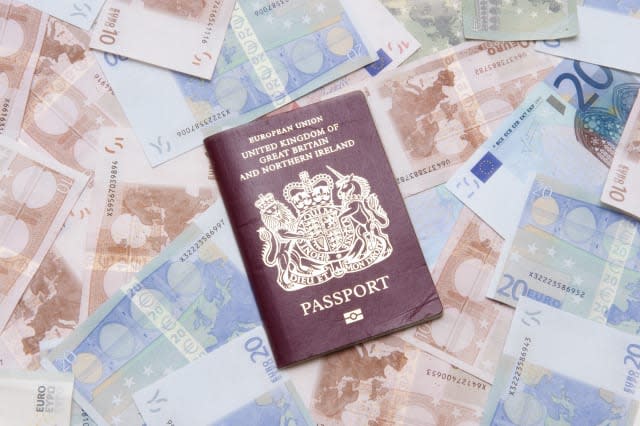Surprise as UK trade gap widens

The UK's trade gap unexpectedly widened in June to fuel concerns about the impact that the strong pound is having on the price of British goods abroad.
Figures from the Office for National Statistics (ONS) said the country's goods trade deficit widened to £9.4 billion from £9.2 billion in May, defying estimates that the gap would close to £8.8 billion.
Led by energy products and other manufactured goods, ONS said the value of exports fell by £400 million to £23.5 billion.
Economists are concerned that the recovery is largely driven by consumer spending while other parts of the economy such as manufacturing and construction lag behind.
The economy has recovered over the past year, with gross domestic product (GDP) expanding 3.1% on an annual basis in the second quarter to return to pre-crisis levels.
The ONS released separate data today showing that construction rose by 1.2% in June compared to May, which led it to revise its second-quarter estimate for the sector to flat from a 0.5% fall.
But as construction makes up just over 6% of the economy, this does not alter the ONS estimate of overall 0.8% GDP growth in the second quarter of the year.
The amount Britain imported also fell slightly in June by £100 million to £32.9 billion, led by fewer oil and aircraft sales.
Including the UK's £7 billion services surplus, the overall trade gap came in at £2.5 billion, up from £2.4 billion in May.
Britain's trade with its largest partner remains unchanged, with June exports to the European Union flat at £12 billion.
Chris Williamson, chief economist at Markit, said the rise of the pound had made British-made goods more expensive abroad, adding that "the full effects of sterling's appreciation over the past year have probably not been felt yet".
The currency has strengthened over recent months as investors anticipate that the Bank of England will be the first of the major central banks to raise interest rates, either towards the end of this year, or early next.
IHS Global Insight chief UK economist Howard Archer added that growing tensions between the West and Russia would also dampen export growth.
He said: "UK exporters will be perturbed by current worrying signs that already-weak eurozone growth is faltering anew as deteriorating relations with Russia and tit-for-tat sanctions weigh down on confidence."
Mr Williamson expects UK trade to continue to act as a drag on growth in the coming months.
He said: "The latest data confirmed that the recovery remained dependent on domestic demand, and in particular the services sector, to maintain its momentum in the second quarter.
"And in the near term at least, it looks likely that exporters will continue to struggle."


